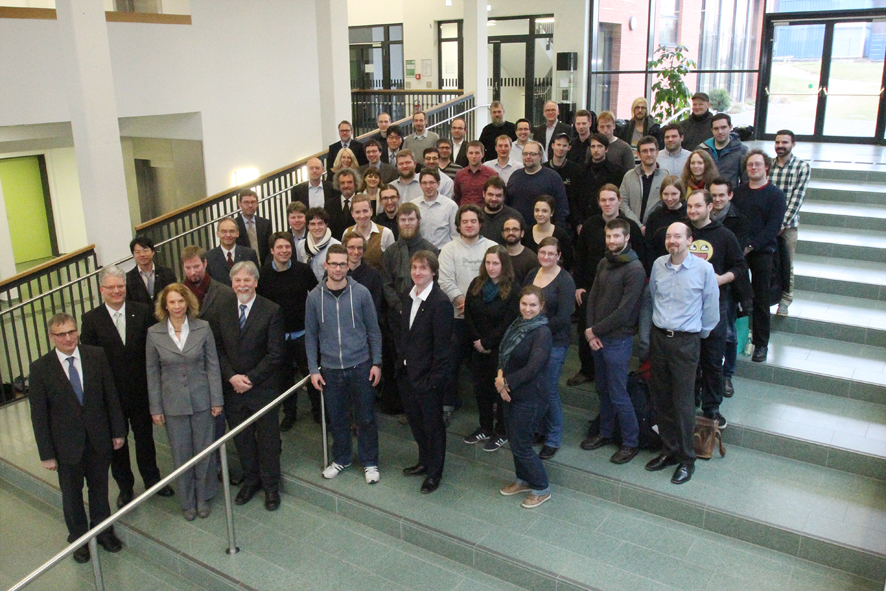

March 29, 2015 8:0

The collaborative research centre 876 has build a bridge between the data analysis and cyber-physical systems. The second phase was granted by Deutsche Forschungsgemeinschaft, so the work is continued from 2015-2018.
The coordinator, Prof. Dr. Katharina Morik, reviewed in the starting presentation the last four years. She emphasized the collaboration from the different discplines which are computer science, statistic, medicine, physics, electrical and machine engineering. The characteristic of the collaborative research centre is, that different disciplines are paired and influence each other. Only the combined undestanding of the set of problems could be the base for the next four years. The frame for the research is to extend the runtime from smartphones or to study galaxys in astrophysics.
Dr. Stefan Michaelis gave a review about the application form for the second phase of the collaborative research centre and on the resources that were available. After that Prof. Dr. Kristian Kersting and Prof. Jian-Jia Chen talked briefly about there field of research.
Prof. Dr. Kersting introduced the "Democratization Of Optimization", which are concepts for scalable and easy-to-use methods. Many problems are so complex that they can not be complete solved in acceptable time. Methods that exploit symmetries inside the data set or incorporate expert knowledge simplify a problem so it could be solved.
Prof. Dr. Jian-Jia talked about "Flexible execution models for cyber-physical systems". Computer systems have to provide a result in a predetermined time, which depends on the task. Even in the case of dynamic processes and changing execution times, the worst case running time has to be predictable. The combination of machine learning and cyber-phyiscal systems will lead to optimal execution models in the future.
